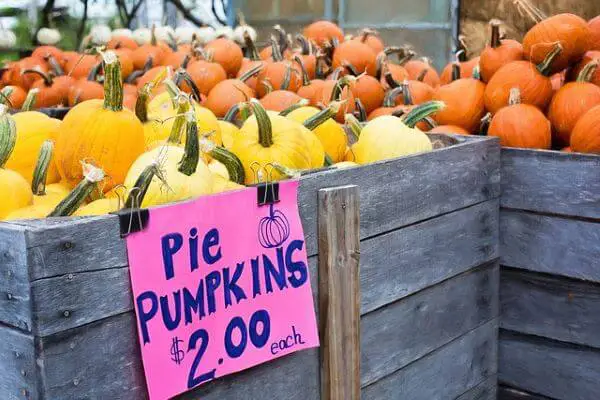It's important to be cautious about what human foods you give to your dog, even during special occasions like Thanksgiving or Christmas. While it's tempting to share your holiday meal with your furry friend, many human foods can be dangerous for dogs and should be avoided.

Here are some safe and healthy options you can feed your dog at Thanksgiving:
Cooked Turkey: Dogs can have cooked turkey in moderation. Just be sure to remove any bones, skin, or excess fat because they can be difficult for dogs to digest.
Mashed Potatoes: Plain mashed potatoes can be a healthy treat for your dog, if they don't contain any butter, salt, or other seasonings.
Steamed Vegetables: Dogs can eat a variety of steamed vegetables such as green beans, sweet potato, and carrots. Avoid giving them vegetables with added seasonings or sauces.
Plain Pumpkin: Plain, unsweetened canned pumpkin can be a healthy treat for your dog, as its rich in fibre and can help with digestive problems.
Plain Rice: Plain cooked rice can be a safe and healthy option for dogs, especially if they have an upset stomach.
Remember, it's important to introduce any new foods to your dog slowly and in small amounts. Also, avoid giving your dog any desserts, chocolates, or other foods that can be toxic to them. If you're unsure about whether a particular food is safe for your dog, consult with your vet.
How do you make a dog friendly Thanksgiving dinner?
Here are some tips for making a dog-friendly Thanksgiving dinner.
Stick to dog-safe foods: All the foods listed above should be fine in moderation. My little pup, Bean, is particularly partial to rice. Avoid giving your dog any foods that are high in fat, salt, or sugar, or that contain onions, garlic, grapes, raisins, or chocolate.
Limit portions: While some human foods are safe for dogs, it's important to limit the amount you give them. Too much of any new food can upset your dog's stomach, so start with small portions and monitor your dog's reaction.
Avoid giving your dog scraps from the table: Begging is a common behaviour in dogs, but it's important not to reinforce it by giving your dog scraps from the table. Instead, prepare a separate plate or bowl with safe foods for your dog.
Keep your your furry friend away from the kitchen: Thanksgiving can be a hectic time in the kitchen, with lots of food and people moving around. Keep your dog in a safe and quiet place away from the action to avoid any accidents or injuries.
Remember, Thanksgiving is a time to be thankful for our loved ones, including our furry family members. By taking a few simple steps, you can make sure that your dog has a safe and enjoyable holiday too.
What can dogs eat at Christmas?
Just like with Thanksgiving, it's important to be cautious about what human foods you give to your dog during Christmas. Many holiday foods can be dangerous for dogs and should be avoided. Here are some safe and healthy options you can give your dog for Christmas.
Cooked Turkey or Ham: Dogs can have cooked turkey or ham in moderation. Just make sure to remove any bones, skin, or excess fat, as they can be difficult for dogs to digest.
Cranberries: Fresh or dried cranberries can be a healthy addition to your dog's diet, as they're rich in antioxidants and can help with urinary tract health.
Unsweetened Applesauce: Unsweetened applesauce can be a healthy treat for dogs, if it doesn't contain any added sugar or sweeteners.
Remember to introduce any new foods to your dog slowly and in small amounts. Also, avoid giving your dog any desserts, chocolates, or other foods that can be toxic to them. If in doubt, you can always give your pup a tasty pig’s ear. Bean sure loves them.
What not to give dogs at Christmas
There are several foods and items that you should avoid giving to your dog at Christmas, as they can be toxic or dangerous to their health. Here are some examples:
Chocolate: Chocolate contains theobromine, which is toxic to dogs and can cause vomiting, diarrhoea, seizures, and even death in severe cases.
Grapes and Raisins: Grapes and raisins can cause kidney failure in dogs, even in small amounts.
Onions and Garlic: Onions and garlic contain compounds that can damage your dog's red blood cells, leading to anaemia.
Alcohol: Alcohol can cause vomiting, diarrhoea, difficulty breathing, and even coma or death in dogs.
Bones: Cooked bones can splinter and cause blockages or tears in your dog's digestive tract, leading to serious health problems.
Tinsel and Ornaments: Tinsel and ornaments can be a choking hazard or cause blockages in your dog's digestive tract if ingested.
Christmas Plants: Holly, mistletoe, and poinsettias can be toxic to dogs and cause vomiting, diarrhoea, and other symptoms.
Remember, even small amounts of these items can be harmful to your dog's health. If your dog ingests any of these items, contact your vet immediately.
Wrapping up
Sharing a festive meal with your furry friend during the holiday season can be a heart-warming experience. While it's important to remember that dogs have different dietary needs than humans, there are plenty of safe and healthy options that your pup can enjoy alongside the rest of the family.
From cooked turkey and steamed vegetables to plain mashed potatoes and cranberries, there are many tasty treats that can be shared without any worry.
But remember, it's equally important to be aware of the foods and items that should be avoided, like chocolate, grapes, alcohol, and decorations. By keeping your dog's health and safety in mind, you can create a memorable and enjoyable holiday for everyone in your household, furry friends included!
